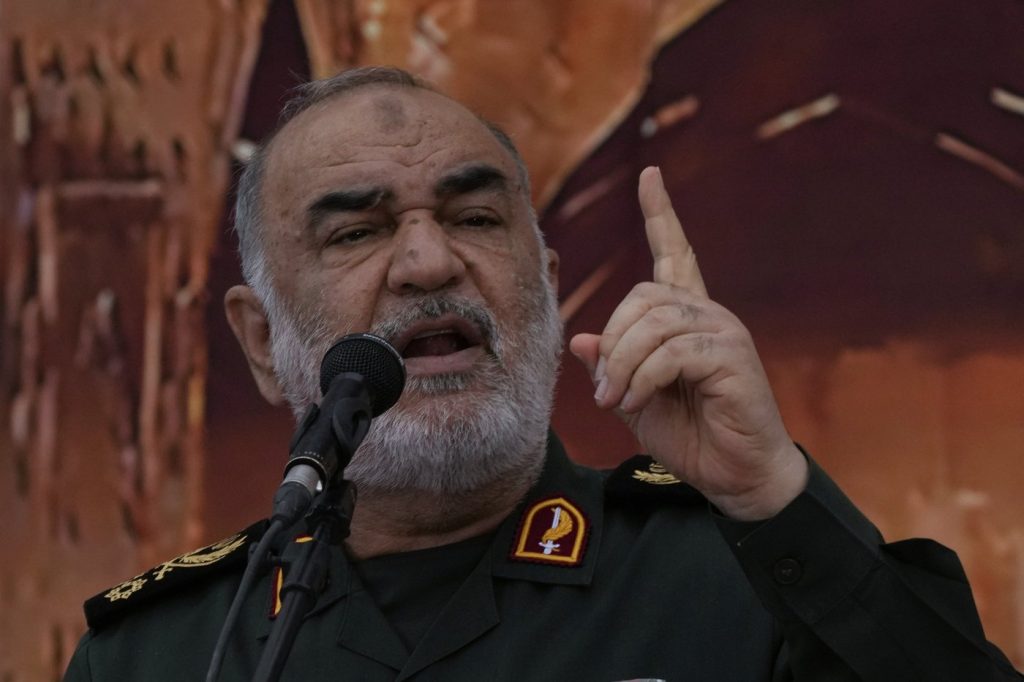TEHRAN, Iran (AP) — Iranian state television has confirmed the death of General Hossein Salami, the head of the paramilitary Revolutionary Guard, who was killed in Israeli airstrikes on Friday morning. His death represents a significant blow to the Iranian leadership amidst ongoing regional conflicts and challenges over the past 20 months.
Salami, aged 65, assumed leadership of the Revolutionary Guard in 2019, a period marked by heightened tensions between Iran and the United States following former President Donald Trump's withdrawal from the international nuclear deal and the reimposition of harsh sanctions. Additionally, under Trump's administration, the Revolutionary Guard was designated a terrorist organization, complicating its status in international relations.
The Iranian Revolutionary Guard has its roots in the 1979 Islamic Revolution and has transformed from a domestic security force into a dominant transnational military entity. The guard not only oversees Iran's powerful arsenal of ballistic missiles, which were used to launch attacks against Israel during the ongoing Israel-Hamas conflict, but also acts in parallel to Iran's conventional military forces. Salami's tenure at the Revolutionary Guard began during the brutal Iran-Iraq War in the 1980s, elevating him to a prominent influence in the nation’s military affairs.
Under Salami's leadership, the Revolutionary Guard has consistently issued aggressive rhetoric towards both Israel and the United States. For instance, in a 2016 address, he expressed intentions toward "annihilating" the "Zionist regime." Following the U.S. drone strike that killed General Qassem Soleimani, head of the Quds Force of the Revolutionary Guard, in January 2020, Salami threatened severe repercussions against American and Israeli military personnel, stating that no commanders associated with threats against Iran would find safe refuge.
The ongoing skirmishes between Israel and Iran have evolved from a shadowy warfare into more overt confrontations. In recent years, both nations have targeted each other directly, culminating in Israeli strikes that resulted in the death of several Iranian generals in Syria. These events prompted Salami to initiate a significant retaliatory operation that involved launching over 300 drones and missiles in an unprecedented military display, though most of them were intercepted by Israeli defenses. In an October escalation, Israeli forces targeted Iranian positions in retaliation for missile attacks originating from Iran, effectively striking at missile production facilities aimed at Israel.
This complex web of military tensions reflects the broader geopolitical struggles in the region, as both Israel and Iran continue to vie for influence amidst a backdrop of ongoing conflicts. With the death of General Salami, the Revolutionary Guard faces a critical leadership void, potentially altering the dynamics of Iran’s military strategy in the region.











